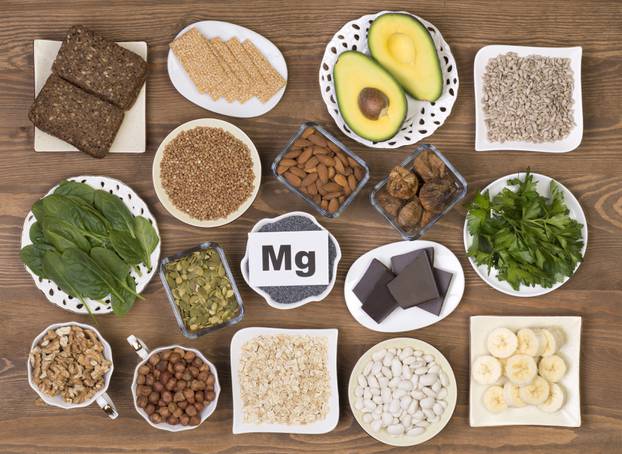Here’s what happens in the body when you have excess magnesium

Although magnesium is an important mineral for many functions in the body, excessive intake – especially through dietary supplements – can lead to unwanted consequences. Mild overdose forms can cause diarrhea and abdominal cramps, but in severe cases, serious symptoms such as difficulty breathing, irregular heart function, and even death may occur. Still, it’s a rare condition.
How much magnesium is enough – and how much too?
Magnesium is key to creating energy, protein synthesis, muscle and nerves health. When we do not bring it enough with food, dietary supplements can help – especially with migraines, constipation, anxiety and sleep problems.
Watch the video:
01:25
Healthy diet
Recommended daily doses of magnesium differ according to age, gender and pregnancy or breastfeeding.
Here’s a guide for the total daily intake (from food and supplements):
- Up to 6 months: 30 mg
- 7–12 months: 75 mg
- 1-3 years: 80 mg
- 4-8 years: 130 mg
- 9–13 years: 240 mg
14–18 years:
- Men: 410 mg
- Women: 360 mg
- Pregnant women: 400 mg
- Breastfeeding: 360 mg
19-30 years:
- Men: 400 mg
- Women: 310 mg
- Pregnant women: 350 mg
- Breastfeeding: 310 mg
31-50 years:
- Men: 420 mg
- Women: 320 mg
- Pregnant women: 360 mg
- Breastfeeding: 320 mg
51+ years:
- Men: 420 mg
- Women: 320 mg
How to prevent an overdose?
The upper boundaries of the daily intake of magnesium are only related to nutritional supplements, not to food:
- Up to 12 months: The upper limit from the supplements has not been determined
- 1-3 years: 65 mg
- 4-8 years: 110 mg
- 9+ years: 350 mg
What are the symptoms of too much magnesium intake?
Due to the many roles that magnesium has in the body, the overdose can be serious.
Symptoms include:
- nausea
- dizziness
- weakness and confusion
- slow reflexes
- headache and redness
- blurred vision
- muscle paralysis
- heart delays in extreme cases
Who is the most at risk?
The risk is greater to:
- people with damaged kidney function
- those taking magnesium against prison
- pregnant women receiving magnesium intravenous because of eclampsia
- people using medicines that increase magnesium absorption (like opioids and anticholinergics)
If you are taking magnesium supplements and you have any of these symptoms – especially with a weakened kidney function – be sure to consult your doctor.
How to diagnose an overdose?
Measurement of magnesium levels in the blood detects the weight of an overdose:
- Blessed: Less than 7 mg/dl
- Moderate: 7–12 mg/dl
- Hard: More than 12 mg/dl
Because the symptoms are not specific, the diagnosis is often made by excluding other conditions such as kidney failure, hypothyroidism or high levels of potassium.
Treatment and prevention
In milder cases, it is enough to stop taking the accessories and allow the body to naturally throw out the excess. But more severe cases may require hospital surveillance, intravenous use of calcium and saline or diuretics or hemodialysis in serious cases
The safest way to enter magnesium? Nutrition. Green leafy vegetables, nuts and seeds are rich in magnesium and bring other important nutrients, such as fiber and antioxidants.









